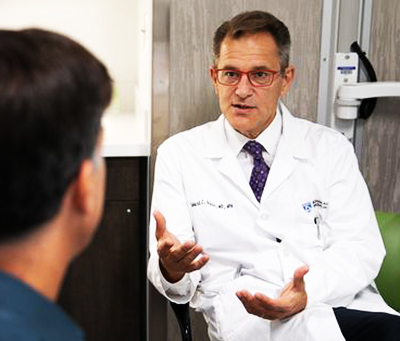By offering DTC preventative gene sequencing, hospital leaders hope to help physicians better predict cancer risk and provide more accurate diagnoses
Two Boston health systems, Brigham and Women’s Hospital and Massachusetts General Hospital (MGH), are the latest to open preventative gene sequencing clinics and compete with consumer gene sequencing companies, such as 23andMe and Ancestry, as well as with other hospital systems that already provide similar services.
This may provide opportunities for clinical laboratories. However, some experts are concerned that genetic sequencing may not be equally available to patients of all socioeconomic classes. Nor is it clear how health systems plan to pay for the equipment and services, since health insurance companies continue to deny coverage for “elective” gene sequencing, or when there is not a “clear medical reason for it, such as for people with a long family history of cancer,” notes STAT.
Therefore, not everyone is convinced of the value of gene sequencing to either patients or hospitals, even though advocates tout gene sequencing as a key element of precision medicine.
Is Preventative Genetic Sequencing Ready for the Masses?
Brigham’s Preventive Genomics Clinic offers comprehensive DNA sequencing, interpretation, and risk reporting to both adults and children. And MGH “plans to launch its own clinic for adults that will offer elective sequencing at a similar price range as the Brigham,” STAT reported.
The Brigham and MGH already offer similar gene sequencing services as other large health systems, such as Mayo Clinic and University of California San Francisco (UCSF), which are primarily used for research and cancer diagnoses and range in price depending on the depth of the scan, interpretation of the results, and storage options.
However, some experts question whether offering the technology to consumers for preventative purposes will benefit anyone other than a small percentage of patients.
“It’s clearly not been demonstrated to be cost-effective to promote this on a societal basis,” Robert Green, MD, MPH, medical geneticist at Brigham and Women’s Hospital, and professor of genetics at Harvard, told STAT. “The question that’s hard to answer is whether there are long-term benefits that justify those healthcare costs—whether the sequencing itself, the physician visit, and any downstream testing that’s stimulated will be justified by the situations where you can find and prevent disease.”
Additionally, large medical centers typically charge more for genomic scans than consumer companies such as 23andMe and Ancestry. Hospital-based sequencing may be out of the reach of many consumers, and this concerns some experts.
“The idea that genomic sequencing is only going to be accessible by wealthy, well-educated patrons who can pay out of pocket is anathema to the goals of the publicly funded Human Genome Project,” Jonathan Berg, MD, PhD, Genetics Professor, University of North Carolina at Chapel Hill, told Scientific American.
Nevertheless, consumer interest in preventative genetic sequencing is increasing and large health systems want a piece of the market. At the same time, genetics companies are reducing their costs and passing that reduction on to their customers. (See Dark Daily, “Veritas Genetics Drops Its Price for Clinical-Grade Whole-Genome Sequencing to $599, as Gene Sequencing Costs Continue to Fall,” October 23, 2018.)
Providers Go Direct to Consumers with Gene Sequencing
Healthcare providers and clinical laboratories played an important part in the growth of the Direct-to-Consumer (DTC) genetic testing, a market which the American Hospital Association (AHA) predicts is on track to expand dramatically over the next decade. BIS Research foresees a $6.3 billion valuation of the DTC genetic test market by 2028, according to a news release.
And, according to the American Journal of Managed Care, “It’s estimated that by 2021, 100 million people will have used a direct-to-consumer (DTC) genetic test. As these tests continue to gain popularity, there is a need for educating consumers on their DTC testing results and validating these results with confirmatory testing in a medical-grade laboratory.”
This is why it’s critical that clinical laboratories and anatomic pathology groups have a genetic testing and gene sequencing strategy, as Dark Daily reported.
David Bick, MD, Chief Medical Officer at the HudsonAlpha Institute for Biotechnology and Medical Director of the Smith Family Clinic for Genomic Medicine, told Scientific American, “there’s just more and more interest from patients and families not only because of 23andMe and the like, but because there’s just this understanding that if you can find out information about your health before you become sick, then really our opportunity as physicians to do something to help you is much greater.”

Is Preventative Genomics Elitist?
As large medical centers penetrate the consumer genetic testing market some experts express concerns. In a paper he wrote for Medium, titled, “Is Preventive Genomics Elitist?” Green asked, “Is a service like this further widening the inequities in our healthcare system?”
Green reported that while building the Preventive Genomics Clinic at Brigham, “we … struggled with the reality that there is no health insurance coverage for preventive genomic testing, and our patients must therefore pay out of pocket. This is a troubling feature for a clinic at Brigham and Women’s Hospital, which is known for its ties to communities in Boston with diverse ethnic and socioeconomic backgrounds.”
Most of Brigham’s early genetics patients would likely be “well-off, well-educated, and largely white,” Green wrote. “This represents the profile of typical early adopters in genetic medicine, and in technology writ large. It does not, however, represent the Clinic’s ultimate target audience.”
More Data for Clinical Laboratories
Nevertheless, preventive genomics programs offered by large health systems will likely grow as primary care doctors and others see evidence of value.
Therefore, medical laboratories that process genetic sequencing data may soon be working with growing data sets as more people reach out to healthcare systems for comprehensive DNA sequencing and reporting.
—Donna Marie Pocius
Related Information:
Top U.S. Medical Centers Roll Out DNA Sequencing Clinics for Healthy Clients
Brigham and Women’s Hospital Opens Preventive Genomics Clinic
Preventive Genomics for Healthy People
Consumers Buy into Genetic Testing Kits
Direct-to-Consumer Genetic Testing Market to Reach $6.36 Billion by 2028



